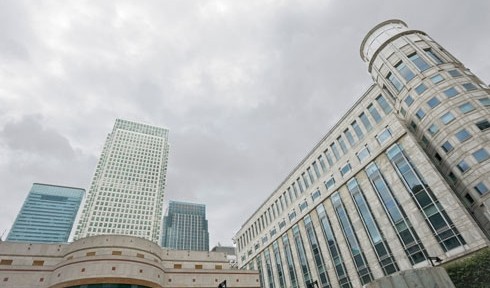With public and consumer spending constrained, business investment will play a critical role in driving the recovery. But foreign investment in the UK fell significantly during the global recession, from $186.4bn in 2007 to $45.7bn in 2009, and the UK’s reputation as a good place to invest is under threat.
In a new report called Making the UK the best place to invest, the CBI identifies the main drivers and blockers for investment, based on research from 400 companies, including interviews with senior business leaders. The report suggests that much more needs to be done to improve the investment landscape to retain companies based here and attract fresh inward investment.
It follows a CBI and Deloitte survey of 121 senior business leaders last October, which found that between 8% and 12% of companies have not yet decided where their primary location will be in five years.
John Cridland, CBI Director-General, said: “We want the UK to be the best place for companies to invest because this is how we will create growth and jobs. But it is worrying how many business leaders are telling us that the UK no longer holds the same attraction it once did and are questioning whether they need to be here at all.
“The Budget and Plan for Growth were a good start, but the Government now has to completely transform the investment landscape.
“With competition for international capital so fierce, the Government must play up our strengths and remove the stumbling blocks to investment. Time isn’t on our side and we have less than five years to turn things around.”
Commenting on the UK’s attractiveness as an investment location, business leaders highlighted a range of issues, including the tax regime, regulation, planning and infrastructure.
Ian Powell, Chairman and Senior Partner, PwC: “We need to create a regulatory and fiscal environment that gives business confidence to back the UK as the place for major investments. We should use rigorous analysis to focus on projects that will help UK business growth, in particular, securing a world-class transport and infrastructure network.”
David Sproxton, Co-founder, Aardman Animations: “Delivering bandwidth on an industrial scale is an essential ingredient in driving the creative industries forward in the UK. This will require clear policy, and even stronger management to ensure the UK isn’t left behind.”
Drivers for investment:
- When asked about the upsides of investing in the UK, business leaders cited the following as important drivers:
- Science base, particularly in research and development, and innovation, highlighting that four of the world’s top ten universities are located in the UK
- The English language, which makes the UK attractive to overseas businesses looking to enter the European market but struggling with the barrier of working in multiple languages
- Cultural aspects and quality of life, which can be important in attracting international headquarters to serve the European market
- The rule of law, including political stability and the ease of doing business.
Barriers to investment:
- When asked about the obstacles to investing, among the factors cited by business leaders were:
- The lack of long-term predictability and certainty. Businesses need to plan ahead so need confidence that incentives will not suddenly disappear, procurement contracts change substantially and that extreme shifts in policy or direction of travel will not occur at each election.
- The 50p personal tax rate, which makes it harder to attract and retain talent, and adds directly to business costs.
- Skills shortages in the UK, particularly in science, technology and maths, affecting a wide range of sectors from manufacturing and engineering to the creative industries.
- The planning system’s ability to deliver timely decisions alongside the Government’s localism agenda.
- The impact of regulation, particularly employment legislation around tribunals, dismissal periods and strike activity.
Areas for action:
- Stimulate new market activity. For example, by opening up public services to private provision; accelerating the transition to a low-carbon economy; making the UK a prime site for clinical trials by speeding up the regulatory process, and improving high-speed broadband availability.
- Use public procurement intelligently by streamlining the bid process, and making it open to innovation and wider economic value.
- Use business taxes to encourage investment. The Government’s recent announcement of a phased reduction to a 23% main corporation tax rate is welcome, but it should set a longer-term objective of reaching 18%. Other business taxes need to be competitive. These include employment taxes, fuel duty, complex low carbon taxes and business rates.
- Support measures to provide small and medium-sized firms with the capital they need to grow through a range of tax changes and more effective use of public procurement.
- Remove the 50p tax rate as soon as the public finances allow and within the lifetime of this Parliament to attract and retain the best mobile talent.
- Develop the UK’s skills base by supporting further business-led academies and extending apprenticeships.
- Build greater resilience into the UK’s infrastructure across transport, energy, waste, water and digital.


